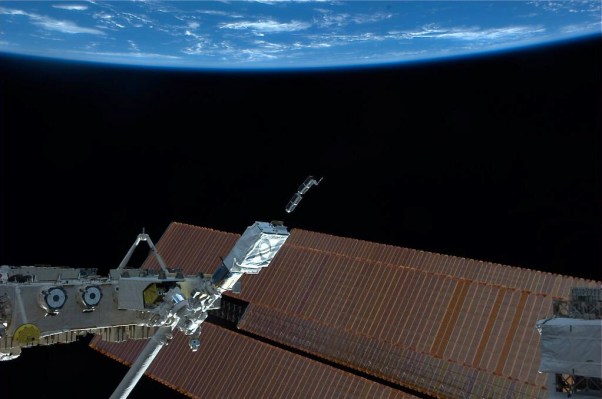With Google and Facebook both interested in drone and satellite companies, perhaps other investors are taking the time to look to the skies.
Last week we reported that Google was in advanced discussions to acquire the satellite company Skybox Imaging in a deal that could easily top $1 billion. It follows the search giant’s acquisition of Titan Aerospace, a drone manufacturer which had also caught the eye of Facebook once upon a time.
While Facebook and Google are providing financial exits for drone and satellite investors, SpaceX has made incredible strides to bring down the costs associated with launching satellites.
It’s all creating a heady environment for investors who feel that the time for the venture-backed disruption of the space and aerospace industries may no longer be on the other side of the event horizon.
However, our data shows that so far very few investors have attempted to make the trip. Indeed, at the height of investors’ interest in drones there were only six companies that raised cash across the market, according to CrunchBase data. And the most money investors have ever committed to the industry in a single quarter is a minuscule $72.4 million, the CrunchBase dataset shows.
Still, some investors are undeterred.
“We’re in the absolute very beginning of a new aerospace paradigm,” says Jeremy Conrad, the co-founder and partner at early stage hardware-focused investment firm, Lemnos Labs.
Lemnos has three investments in drone technology companies, including: Airware, which makes autopilot systems for drones; VIRES Aeronautics, a developer of wing technologies for drones; and Ceres Imaging, which uses imaging technology to optimize water and fertilizer use for farmers. The firm is also backing the miniature satellite manufacturer, Nanosatisfi.
Conrad and Lemnos Labs isn’t the only firm that sees promise in the drone industry. Draper Associates, the Foundry Group and Andreessen Horowitz all believe in a droning future. Andreessen actually invested in the over $10 million Series A round for Lemnos’ own company Airware. Most of these players are also major backers of companies in the satellite businesses as well.
“I think the robots have taken over and it’s time for us to admit it,” says Jason Mendelson, a managing director with the Boulder, Colo.-based venture capital firm The Foundry Group and the firm’s representative on the board of its drone company, 3D Robotics. Using drones will allow individuals and institutions access to places — and an ability to do things — that previously were impossible, he says.
The same is true for investors’ adventures in space, and their attempts to boldly go where no venture capital firm has gone before. Chiefly, firms like DFJ, Lux Capital, and First Round Capital, have backed a number of drone and satellite imaging companies — most notably Planet Labs, which closed a $52 million round from Yuri Milner last year to back its launch plans for a fleet of low-cost imaging satellites.
At I2BF Global Ventures, a Russian-backed investment firm with operations around the world, satellites have occupied a small part of the portfolio, but represent huge potential for founding partner Ilya Golubovich. His portfolio company Dauria Aerospace
is set to launch four satellites over the next six months and his asteroid mining company, Planetary Resources is readying a 2015 satellite mission to reconnoiter the asteroid belt with a fleet of satellites to conduct spectral analysis and other kinds of tests before the company prepares for a launch “later in the decade,” according to Golubovich.
Planetary Resources already has the luxury of being revenue positive, according to Golubovich, thanks to the company’s contracts for technologies that are complementary to its grand mission, the Russian investor says.
“There are going to be 2,000 micro-satellites launched in the next decade. A lot of them are going to be imaging satellites, so the amount of imagery available is going to go way up,” says Golubovich. The problem will be finding applications for the massive amounts of data these satellites will be collecting.
At Lemnos Labs, Conrad is bullish on the future of satellite technology and enabling applications and services for the space industry. “There are a couple of things that are happening that are going to fundamentally change [the industry] and you’re going to see an absolute explosion in satellite companies,” he says. Chiefly, the reduced costs of getting to space and the profusion of data coming from satellites are going to open doors for companies.
At Draper Associates, which is an investor in Skybox Imaging and VIRES, the opportunities are also apparent. “The consumerization of IT in business is now the consumerization of IT in space,” says Joel Yarmon, a partner with Draper Associates.
